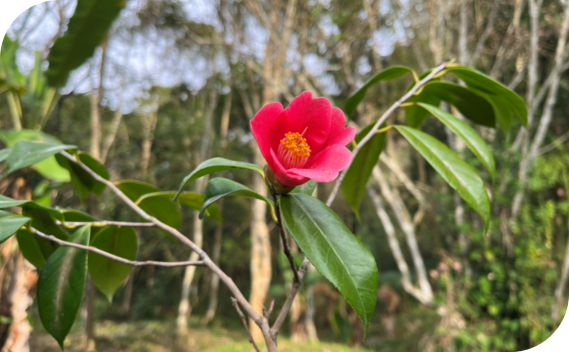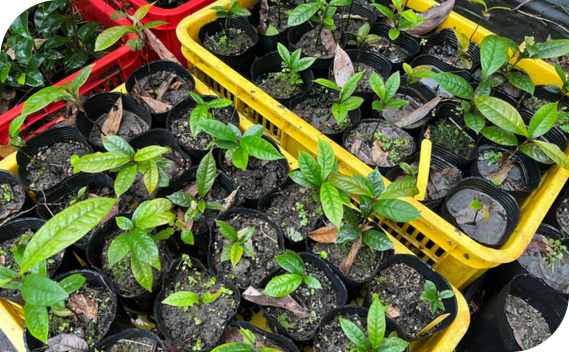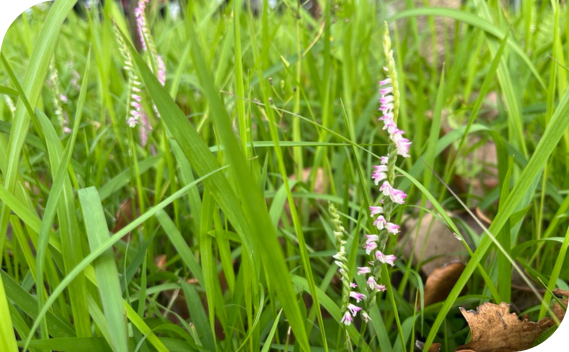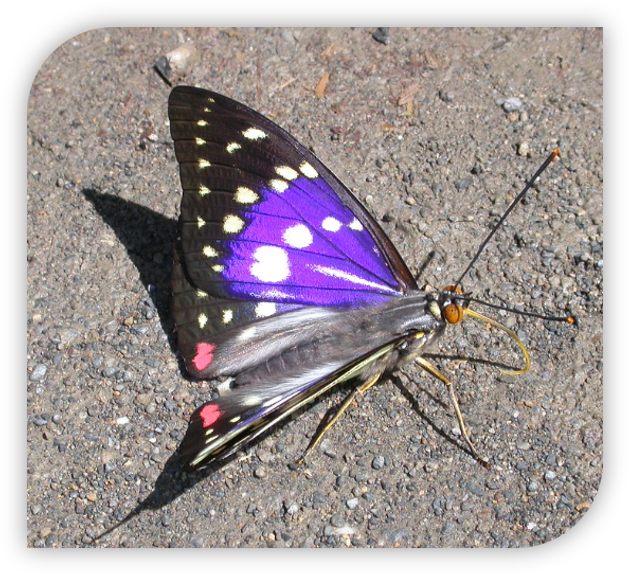Our Focuses|Nature-based Solutions|Biodiversity
Protecting Biodiversity
Winbond is committed to protecting biodiversity, recognizing it as a key element of sustainable development. The Chairman has signed the “Winbond Biodiversity Commitment,” pledging to reduce environmental impacts from operations and the value chain, achieve net positive impact and net-zero deforestation, and safeguard ecosystem integrity.
Winbond has adopted the LEAP methodology from the Taskforce on Nature-related Financial Disclosures (TNFD) to assess the dependencies and impacts of its operational sites on nature. Through systematic analysis, we identify nature-related risks and opportunities and integrate them into our Enterprise Risk Management (ERM) framework to enhance risk control, ensure operational stability, and protect stakeholders’ interests.
We actively mitigate biodiversity loss through green manufacturing, afforestation, sustainable supply chain collaboration, and research on natural carbon sinks. Environmental education is also emphasized to raise public awareness of ecological protection.
Conservation and Breeding Program of Tree Species
In 2021, Winbond launched the Baoshan Park Species Conservation and Breeding Program, leveraging group resources to cultivate native tree species in Taiwan. The initial focus is on Theaceae plants, with the collection and cultivation of native plant species in Taiwan. In collaboration with National Chung Hsing University (NCHU) , the program aims to achieve species conservation and breeding, ecological education, and sustainable forestry. The goal is to preserve a forest garden with conservation, education, and cultural value amidst rapid social development and expansion.
The broad definition of the Theaceae family includes the Theaceae and Pentaphylacaceae families. The Theaceae plants in Taiwan have diverse habitats, ranging from the coast to high mountains, where they can be found. Many species are of high economic value due to their landscape value and practical uses. However, they are also subject to various human threats. For example, the Japanese camellia was often poached in the past for use as rootstock or ornamental plants; the Taiwan camellia, due to the high value of its leaves, is often poached or pruned to stunt its growth; and the tea seed oil, because of its high economic value, has led to the introduction of various foreign tea species for crossbreeding, causing confusion in the wild gene pool of native camellias. All these factors have harmed the native camellia populations in Taiwan. The growth of Theaceae plants is very slow, and once damaged, they are difficult to recover. In light of this, Winbond adheres to the spirit of “protecting Taiwan’s native plants and preserving the camellia gene pool.” There are a total of 42 species of Theaceae plants in Taiwan, and as of Dec 2024, 33 species have been collected and cultivated, including one species assessed as critically endangered, one as endangered, seven as vulnerable, and three as near-threatened in the Red list.



Endangered Wild Plant 'Spiranthes' Discovered!
Taiwan's Smallest Native Plain Orchid
Spiranthes spp., once a thriving and abundant plant on the plains of Taiwan (as depicted in Figure 10), has experienced a significant reduction in its habitat in recent years due to habitat loss, fragmentation, and the decline of native green spaces on the plains. This has resulted in its inclusion in the Convention on International Trade in Endangered Species of Wild Fauna and Flora. The green spaces at Winbond's CTSP Fab and Tainan building, which were free of pesticides, were found to be suitable habitats for the expansion of Spiranthes populations. To conserve Spiranthes populations, Winbond postponed weeding during the plant's flowering and fruiting period, allowing it to reproduce naturally. After the flowering period, maintenance was performed on the greenway to ensure that Spiranthes had the opportunity to continue reproducing through rhizomes and seeds. Wild plants are an essential component of biodiversity. We educated our colleagues on the importance of conserving wild plants and encouraged them to join this initiative. Conservation is urgent. Winbond is committed to preserving Taiwan’s biodiversity and ecology by protecting endangered wild plants and contributing to the conservation of this land.
Creating a Native Wildflower Garden with Ecological Landscaping
energy-efficient, and focused on creating a thriving native plant ecology within the city. This garden featured 20 species of native Taiwanese plants, including 1 critically endangered, 3 endangered, and 3 vulnerable species, as listed in the IUCN Red List of Threatened Species. Spanning approximately 5 square meters, the garden showcases the beauty of the changing seasons, while providing ecological benefits such as air purification, microclimate regulation, and dust absorption. The use of native Taiwanese tree species aligns with SDG 15, protect, restore and promote sustainable use of terrestrial ecosystems. Furthermore, by protecting endangered species, the garden will serve as an educational purpose, raising awareness for conservation efforts.


The Reborn of Butterfly – Protect the beautiful home of the great purple butterfly
The Sasakia charonda formosana, classified as an endangered wild animal under wildlife conservation regulations, is assessed as vulnerable in the IUCN Red List. It is only found in the mountainous areas of Jianshi Township, Hsinchu County, and Fuxing Township, Taoyuan County. During its life cycle, the butterfly lays eggs on the branches or leaves of Quercus glauca. After hatching, the larvae move to the leaf litter under the trees to overwinter. Currently, its habitat has shrunk, and the number of mature Quercus glauca trees has decreased, directly affecting the population of Sasakia charonda formosana.
Nuvoton, a subsidiary, and the Forestry and Nature Conservation Agency, Ministry of Agriculture (FANCA) have planned this project in collaboration with the Bailan Tribe of Wufeng Township. Using remote sensing technology, they record the distribution and phenology of Quercus glauca, with regular maintenance by the community patrol team. This establishes a long-term monitoring database for use in ecological tours and appropriately develops ecotourism routes. Nuvoton combines technology to conserve precious species, uniting local tribes to protect their homeland, and hopes to raise awareness through environmental education, promoting the ideal blueprint for sustainable urban and rural development.




